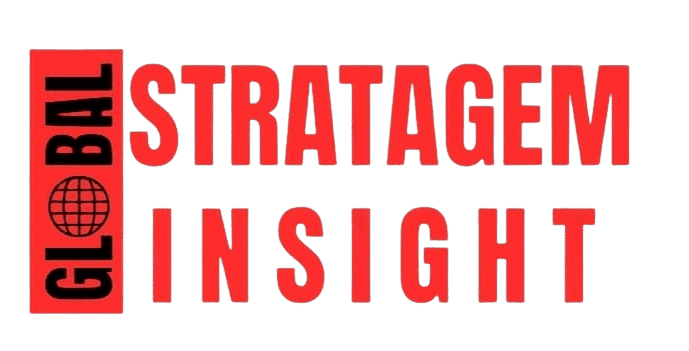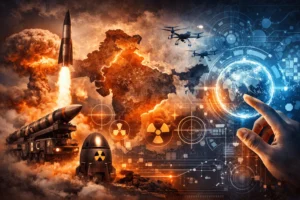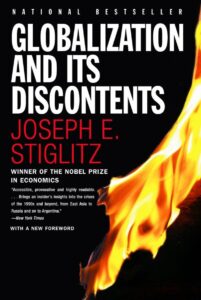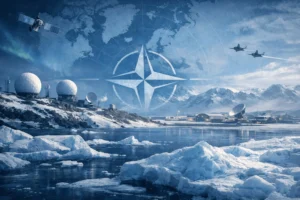Arms Control in Retreat: How Populism and Great Power Politics Are Rewriting Global Disarmament Norms
Maham Hashmat November 7, 2025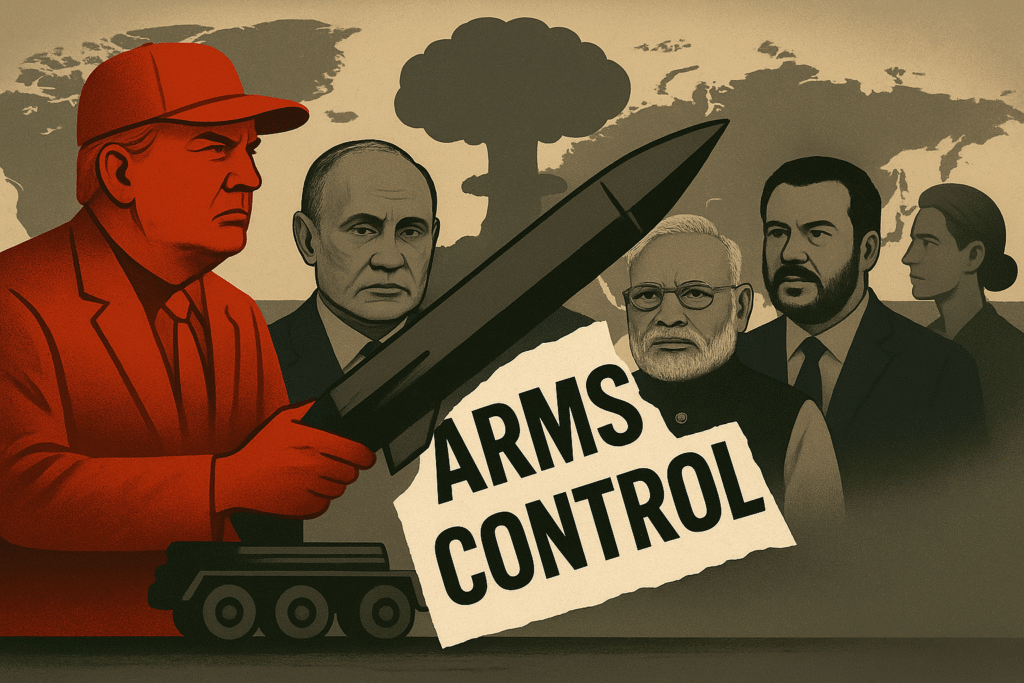
Populism vs. Disarmament: The Global Retreat of Arms Control
The global arms race initiated in the pre-world war I era, dragged the world into the catastrophic world wars. The horrific of these wars compelled the states to put a constraint on the armaments. Thus, the post-Cold War decades were once remembered as the golden era of arms control. Many multilateral treaties like Comprehensive Nuclear-Test-Ban Treaty (CTBT), START I (Strategic Arms Reduction Treaty), and Chemical Weapons Convention (CWC) were concluded in the strategic interest of all states. These treaties symbolized a collective security of the international system based on trust, institutionalism and multilateralism.
However, today, the situation seems critical. The modern international world is characterized by the growing influence of populism and great power rivalry. Along with this, wars on international and national fronts have created a sense of insecurity among states. In this scenario, states are heading towards rearmament by condemning the established norms of arms control and disarmament.
From Washington to Moscow, Riyadh to Tel-Aviv and New Delhi to Beijing, countries are fueling the arms industries rather than investing in strong institutions to control the arms supply. Along with the great power competition and chaos, the changing behavior of politics especially in the form of populism is also a significant reason for states to invest in armament.
The statistics highlight the surge in the arms race. According to SIPRI report, global military spending is set to cross $2.4 trillion between 2023 and 2025. The United States, with its continuous legacy remains the world’s largest exporter and increased its share from 34% to 42% in less than a decade. The major buyers of U.S. weapons are Saudi Arabia, Qatar, and Israel. Right after the U.S., France is holding the position of world’s second largest arms exporter.
As being in great competition with the US, China is also rapidly modernizing its nuclear arsenals and conventional weapons. According to the Guardian, by 2035, the warheads of China are estimated to reach 1,500. Along with China, Russia is also aspiring to upgrade its nuclear arsenals.
Here numbers are only half the picture. As arms control and disarmament requires trust in multilateralism and empathy for human beings, the opposite is happening due to the rise in populism in international politics. Populism thrives on suspicion, nationalism and the idea of having a strong military which motivates the populist leaders to increase their arms stockpiles. This rise in populism pushes the states to behave assertively in order to hold power at home.
The power in the hands of populist leaders like Donald Trump who empowered his politics by raising the slogan of “America First”, resulted in the dismissal of treaties of arms control. These treaties, including Populist leaders like the Intermediate-Range Nuclear Force (INF) treaty and the Iran Nuclear Deal back in 2018, had further exacerbated the process of disarmament and control. His second tenure might also highlight the similar kind of attitude regarding arms control.
In Asia, India is also crippling with the same issue. Narender Modi’s populist nationalism, amplified after the Balakot strikes and the recent Pahalgam attack, has fueled military modernization and aggressive rhetoric. Under his narrative, “Aatmanirbhar Bharat” (self-reliance) has sky-rocketed the production of indigenous arms. While not a direct violation of treaties, such militarism leaves little space for cooperative arms control.
On the other hand, Putin’s Russia provides an even starker example. In 2022, Moscow suspended participation in New START, ending the last vestige of arms control with Washington. By halting data sharing and inspections, Putin not only defied the U.S but also dismantled decades of transparency.
The most troubling thing here is that arms control is no longer politically profitable. In a populist age, where compromise is seen as weakness, cooperation is framed as betrayal. Leaders who campaign on nationalism rarely admit the value of restraint. Instead, arms control treaties are projected as “bad deals”, diplomacy is cornered, and the experts are silenced. The result is not just rising arsenals but the normalization of distrust.
If this trajectory continues, the world will trap into a new era of weapons proliferation which is more unpredictable and dangerous than the cold war itself. However, it can be put into halt. Arms control could regain relevance if reframed not as a constraint but as a guarantee of sovereignty and survival.
There is a strong need to redefine politics. Advocating the citizens to identify the populist behavior of their leaders and political parties is crucial. The trust in institutions and multilateralism is also highly required. Without cooperation, the persisting security dilemma would empower states to increase their conventional and nuclear arsenals to a never-ending extent. The policy maker must consider the cooperative ways to slow down the process of armament. Along with this, technological-driven transparency tools, stronger regional frameworks, and pressure from civil society could push leaders to reconsider their policies related to arms control. History reminds us that arms control often reemerges from crisis, today the challenge is to revive it before catastrophe forces our hands.
